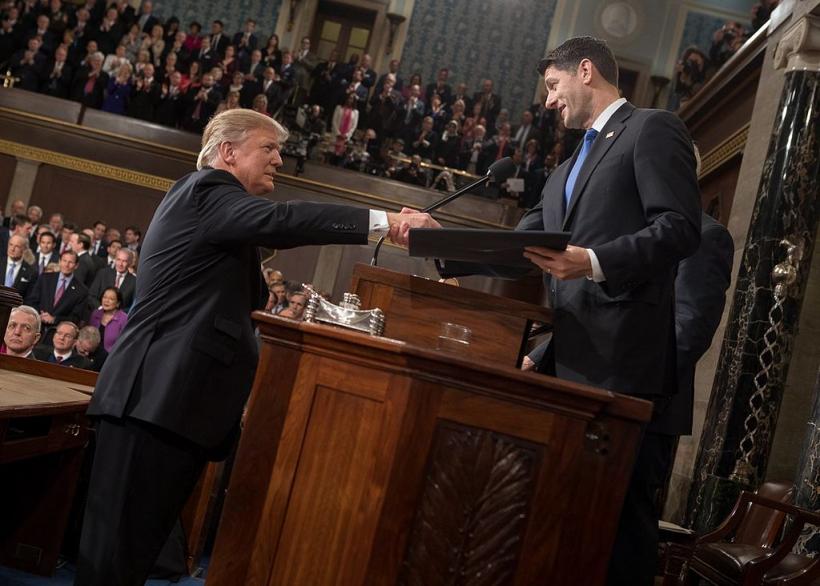
Budget proposal, yes. Force of law, NOPE. (Image Credit: By Office of the Speaker via Wikimedia Commons)
I’m going to start today’s Rav’s Radar with two words: Don’t Panic.
Those words are important to remember because today the latest occupant of the White House released his budget proposal and it’s…well, it’s awful.
There are a lot of good articles that explain what all the administration wants to do with our tax dollars, but the basic overview is that he wants to spend a shit-ton on the military and cut everything else. Items that he would happily consign to the dustheap include Meals on Wheels, and the Low Income Heating Assistance Program.
Make America Cold and Hungry Again.
But the reason I told you not to panic several paragraphs ago is because the president’s budget proposal is just that: a proposal. It has no force of law. It’s his wish list, not an order that everyone must now follow.
Here's how the U.S. federal budget is made: the president first proposes his budget and, like I said, it’s a wish list. It’s a political statement about an administration’s priorities. He sends it to Congress for review. They have a hearty chuckle and get to work ignoring it.
You see, for every cut a president wants to make, there’s a House Rep or a Senator who loves that program wholeheartedly because of its effect on their state. They will do everything in their power to protect funding that has a direct impact at home.
The next step in the process will be the budget proposal that comes out of the House Committee on the Budget. Historically, we have seen these to be less radical than the President’s, but still more radical than the Senate’s, which will be the final piece of the budget puzzle. Eventually, the House and Senate will collaborate to iron out the differences between their two proposals and will bring what’s known as the budget resolution to a vote. Once it passes, that’s it.
No, really. That’s it. The budget resolution isn't a law. The president doesn’t sign it. He can’t revise it. Congress owns the budget process and they finalize it.
Now, this isn’t the end of how the government spends money. The budget is top line figures for running programs. After that’s established, the House and Senate Appropriations Committees get to work divvying up the allocations more specifically. Appropriations bills are laws that the president does sign, so he will be back in the picture, but only for final approval. He’s not in charge of deciding how money gets spent.
If you didn't know that, don’t feel bad. I’m not sure the current president knows it either. I think he's in for a pretty rude awakening when he finds out. Teehee!
So, don’t panic. There’s still time to save programs that matter. Just start working the phones and showing up for town hall meetings and screaming your existential rage into your pillow at night. You know, just like everything else in 2017.







